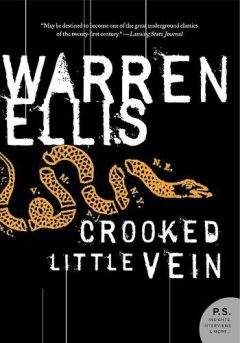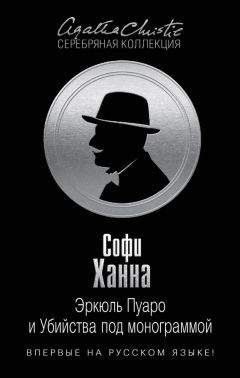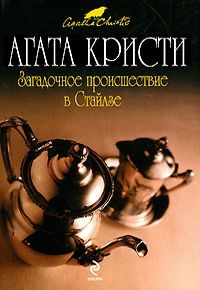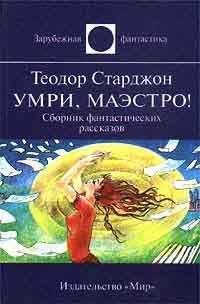[395] After which piece of moralizing, he resumed his search.
[396] A small purple despatch-case, with a key in the lock, on the writing-table, engaged his attention for some time. He took out the key from the lock, and passed it to me to inspect. I saw nothing peculiar, however. It was an ordinary key of the Yale type, with a bit of twisted wire through the handle.
[397] Next, he examined the framework of the door we had broken in, assuring himself that the bolt had really been shot. Then he went to the door opposite leading into Cynthia's room. That door was also bolted, as I had stated. However, he went to the length of unbolting it, and opening and shutting it several times; this he did with the utmost precaution against making any noise. Suddenly something in the bolt itself seemed to rivet his attention. He examined it carefully, and then, nimbly whipping out a pair of small forceps from his case, he drew out some minute particle which he carefully sealed up in a tiny envelope.
[398] On the chest of drawers there was a tray with a spirit lamp and a small saucepan on it. A small quantity of a dark fluid remained in the saucepan, and an empty cup and saucer that had been drunk out of stood near it.
[399] I wondered how I could have been so unobservant as to overlook this. Here was a clue worth having. Poirot delicately dipped his finger into liquid, and tasted it gingerly. He made a grimace.
[400] "Coco-with-I think-rum in it."
He passed on to the debris on the floor, where the table by the bed had been overturned. A reading-lamp, some books, matches, a bunch of keys, and the crushed fragments of a coffee-cup lay scattered about.
[401] "Ah, this is curious," said Poirot.
"I must confess that I see nothing particularly curious about it."
[402] "You do not? Observe the lamp-the chimney is broken in two places; they lie there as they fell. But see, the coffee-cup is absolutely smashed to powder."
[403] "Well," I said wearily, "I suppose some one must have stepped on it."
[404] "Exactly," said Poirot, in an odd voice. "Some one stepped on it."
[405] He rose from his knees, and walked slowly across to the mantelpiece, where he stood abstractedly fingering the ornaments, and straightening them-a trick of his when he was agitated.
[406] "Mon ami," he said, turning to me, "somebody stepped on that cup, grinding it to powder, and the reason they did so was either because it contained strychnine or-which is far more serious-because it did not contain strychnine!"
[407] I made no reply. I was bewildered, but I knew that it was no good asking him to explain. In a moment or two he roused himself, and went on with his investigations. He picked up the bunch of keys from the floor, and twirling them round in his fingers finally selected one, very bright and shining, which he tried in the lock of the purple despatch-case. It fitted, and he opened the box, but after a moment's hesitation, closed and relocked it, and slipped the bunch of keys, as well as the key that had originally stood in the lock, into his own pocket.
[408] "I have no authority to go through these papers. But it should be done-at once!"
[409] He then made a very careful examination of the drawers of the wash-stand. Crossing the room to the left-hand window, a round stain, hardly visible on the dark brown carpet, seemed to interest him particularly. He went down on his knees, examining it minutely-even going so far as to smell it.
[410] Finally, he poured a few drops of the coco into a test tube, sealing it up carefully. His next proceeding was to take out a little notebook.
[411] "We have found in this room," he said, writing busily, "six points of interest. Shall I enumerate them, or will you?"
[412] "Oh, you," I replied hastily.
[413] "Very well, then. One, a coffee-cup that has been ground into powder; two, a despatch-case with a key in the lock; three, a stain on the floor."
[414] "That may have been done some time ago," I interrupted.
[415] "No, for it is still perceptibly damp and smells of coffee. Four, a fragment of some dark green fabric-only a thread or two, but recognizable."
[416] "Ah!" I cried. "That was what you sealed up in the envelope."
[417] "Yes. It may turn out to be a piece of one of Mrs. Inglethorp's own dresses, and quite unimportant. We shall see. Five, *THIS!" With a dramatic gesture, he pointed to a large splash of candle grease on the floor by the writing-table. "It must have been done since yesterday, otherwise a good housemaid would have at once removed it with blotting-paper and a hot iron. One of my best hats once-but that is not to the point."
[418] "It was very likely done last night. We were very agitated. Or perhaps Mrs. Inglethorp herself dropped her candle."
[419] "You brought only one candle into the room?"
[420] "Yes. Lawrence Cavendish was carrying it. But he was very upset. He seemed to see something over here"-I indicated the mantelpiece-"that absolutely paralysed him."
[421] "That is interesting," said Poirot quickly. "Yes, it is suggestive"-his eye sweeping the whole length of the wall- "but it was not his candle that made this great patch, for you perceive that this is white grease; whereas Monsieur Lawrence's candle, which is still on the dressing-table, is pink. On the other hand, Mrs. Inglethorp had no candlestick in the room, only a reading-lamp."
[422] "Then," I said, "what do you deduce?"
[423] To which my friend only made a rather irritating reply, urging me to use my own natural faculties.
[424] "And the sixth point?" I asked. "I suppose it is the sample of coco."
[425] "No," said Poirot thoughtfully. "I might have included that in the six, but I did not. No, the sixth point I will keep to myself for the present."
[426] He looked quickly round the room. "There is nothing more to be done here, I think, unless"-he stared earnestly and long at the dead ashes in the grate. "The fire burns-and it destroys. But by chance-there might be-let us see!"
[427] Deftly, on hands and knees, he began to sort the ashes from the grate into the fender, handling them with the greatest caution. Suddenly, he gave a faint exclamation.
[428] "The forceps, Hastings!"
[429] I quickly handed them to him, and with skill he extracted a small piece of half charred paper.
[430] "There, mon ami!" he cried. "What do you think of that?"
[431] I scrutinized the fragment. This is an exact reproduction of it:
ll and[12]
[432] I was puzzled. It was unusually thick, quite unlike ordinary notepaper. Suddenly an idea struck me.
[433] "Poirot!" I cried. "This is a fragment of a will!"
[434] "Exactly."
[435] I looked up at him sharply.
[436] "You are not surprised?"
[437] "No," he said gravely, "I expected it."
[438] I relinquished the piece of paper, and watched him put it away in his case, with the same methodical care that he bestowed on everything. My brain was in a whirl. What was this complication of a will? Who had destroyed it? The person who had left the candle grease on the floor? Obviously. But how had anyone gained admission? All the doors had been bolted on the inside.
[439] "Now, my friend," said Poirot briskly, "we will go. I should like to ask a few questions of the parlourmaid-Dorcas, her name is, is it not?"
[440] We passed through Alfred Inglethorp's room, and Poirot delayed long enough to make a brief but fairly comprehensive examination of it. We went out through that door, locking both it and that of Mrs. Inglethorp's room as before.
[441] I took him down to the boudoir which he had expressed a wish to see, and went myself in search of Dorcas.
[442] When I returned with her, however, the boudoir was empty.
[443] "Poirot," I cried, "where are you?"
[444] "I am here, my friend."
[445] He had stepped outside the French window, and was standing, apparently lost in admiration, before the various shaped flower beds.
[446] "Admirable!" he murmured. "Admirable! What symmetry! Observe that crescent; and those diamonds-their neatness rejoices the eye. The spacing of the plants, also, is perfect. It has been recently done; is it not so?"
[447] "Yes, I believe they were at it yesterday afternoon. But come in-Dorcas is here."
[448] "Eh bien, eh bien![13] Do not grudge me a moment's satisfaction of the eye."
[449] "Yes, but this affair is more important."
[450] "And how do you know that these fine begonias are not of equal importance?"
[451] I shrugged my shoulders. There was really no arguing with him if he chose to take that line.
[452] "You do not agree? But such things have been. Well, we will come in and interview the brave Dorcas."
[453] Dorcas was standing in the boudoir, her hands folded in front of her, and her grey hair rose in stiff waves under her white cap. She was the very model and picture of a good old-fashioned servant.
[454] In her attitude towards Poirot, she was inclined to be suspicious, but he soon broke down her defences. He drew forward a chair.
"Pray be seated, mademoiselle."
"Thank you, sir."
[455] "You have been with your mistress many years, is it not so?"
[456] "Ten years, sir."
[457] "That is a long time, and very faithful service. You were much attached to her, were you not?"
[458] "She was a very good mistress to me, sir."
[459] "Then you will not object to answering a few questions. I put them to you with Mr. Cavendish's full approval."
[460] "Oh, certainly, sir."
[461] "Then I will begin by asking you about the events of yesterday afternoon. Your mistress had a quarrel?" 43»
[462] "Yes, sir. But I don't know that I ought--" Dorcas hesitated. Poirot looked at her keenly.
[463] "My good Dorcas, it is necessary that I should know every detail of that quarrel as fully as possible. Do not think that you are betraying your mistress's secrets. Your mistress lies dead, and it is necessary that we should know all-if we are to avenge her. Nothing can bring her back to life, but we do hope, if there has been foul play, to bring the murderer to justice."
[464] "Amen to that," said Dorcas fiercely. "And, naming no names, there's *ONE in this house that none of us could ever abide! And an ill day it was when first *HE darkened the threshold."
[465] Poirot waited for her indignation to subside, and then, resuming his business-like tone, he asked:
[466] "Now, as to this quarrel? What is the first you heard of it?"
[467] "Well, sir, I happened to be going along the hall outside yesterday--"
[468] "What time was that?"
[469] "I couldn't say exactly, sir, but it wasn't tea-time by a long way. Perhaps four o'clock-or it may have been a bit later. Well, sir, as I said, I happened to be passing along, when I heard voices very loud and angry in here. I didn't exactly mean to listen, but-well, there it is. I stopped. The door was shut, but the mistress was speaking very sharp and clear, and I heard what she said quite plainly. 'You have lied to me, and deceived me,' she said. I didn't hear what Mr. Inglethorp replied. He spoke a good bit lower than she did-but she answered: 'How dare you? I have kept you and clothed you and fed you! You owe everything to me! And this is how you repay me! By bringing disgrace upon our name!' Again I didn't hear what he said, but she went on: 'Nothing that you can say will make any difference. I see my duty clearly. My mind is made up. You need not think that any fear of publicity, or scandal between husband and wife will deter me.' Then I thought I heard them coming out, so I went off quickly."
[470] "You are sure it was Mr. Inglethorp's voice you heard?"
[471] "Oh, yes, sir, whose else's could it be?"
[472] "Well, what happened next?"
[473] "Later, I came back to the hall; but it was all quiet. At five o'clock, Mrs. Inglethorp rang the bell and told me to bring her a cup of tea-nothing to eat-to the boudoir. She was looking dreadful-so white and upset. 'Dorcas,' she says, 'I've had a great shock.' 'I'm sorry for that, m'm,' I says. 'You'll feel better after a nice hot cup of tea, m'm.' She had something in her hand. I don't know if it was a letter, or just a piece of paper, but it had writing on it, and she kept staring at it, almost as if she couldn't believe what was written there. She whispered to herself, as though she had forgotten I was there: 'These few words-and everything's changed.' And then she says to me: 'Never trust a man, Dorcas, they're not worth it!' I hurried off, and got her a good strong cup of tea, and she thanked me, and said she'd feel better when she'd drunk it. 'I don't know what to do,' she says. 'Scandal between husband and wife is a dreadful thing, Dorcas. I'd rather hush it up if I could.' Mrs. Cavendish came in just then, so she didn't say any more."
![Агата Кристи - Загадочное происшествие в Стайлзе [with w_cat]](https://cdn.my-library.info/books/no-image.jpg)



